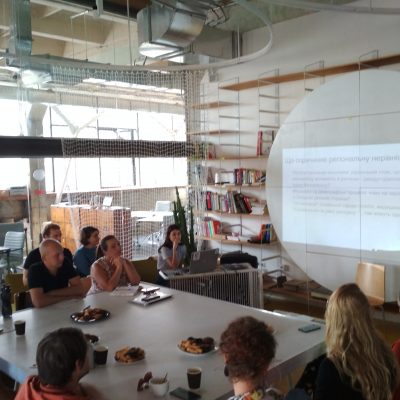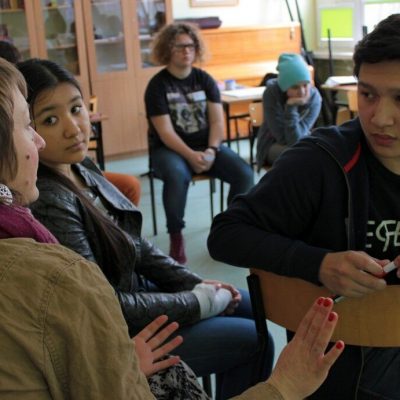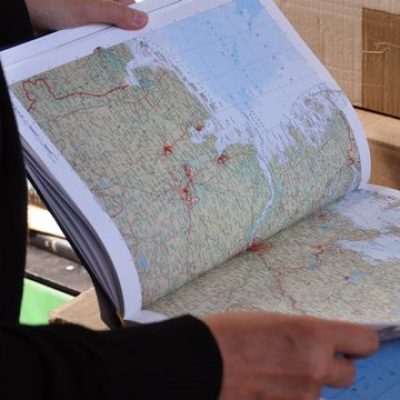Article
The coronavirus pandemic has had a devastating impact on communities across the globe. For young students in Kenya, March was their last month in the classroom. The 2020 school year has been eliminated entirely; forcing 12 million grade-school students to remain at the same level next year. In addition to a decreased likelihood of returning to that original progress once schools reopen, for many, the stay-at-home period almost guarantees a reversal of any progress students may have made at the start of the school year. The ministry of education’s recommendations include participation in online learning or the use of other resources that require access to technologies that children living in villages lack.
Senior Fellow Topaz Mukulu wanted to do something to help students learn. Born and raised in Kenya, she decided to work with a small village in Bunyala, in the western province of Kenya, where her grandmother is from. Now, more than ever, children in Bunyala are eager to resume learning in some capacity, but the pandemic has served to further inhibit them from achieving their basic educational goals. Familiarity with the village community encouraged her to start something small, yet impactful.
Born and raised in Kenya, Topaz Mukulu decided to work with a small village in Bunyala, in the western province of Kenya, where her grandmother is from.
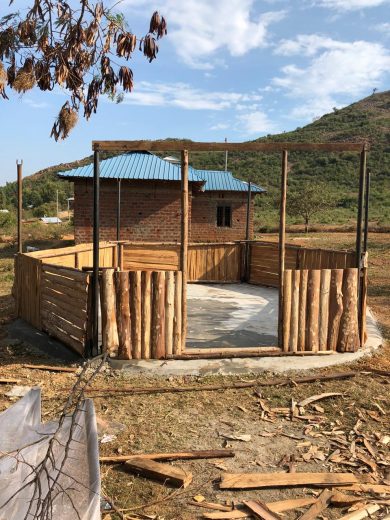
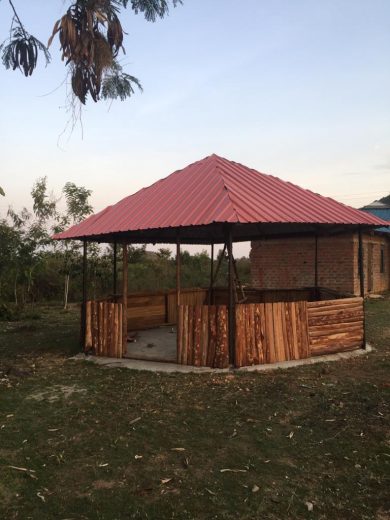
Topaz drafted a plan to help the village’s children and their potential needs. With the help of a family member, she connected and consulted with community leaders to accurately identify the needs of the children, and how those needs could best be met.
She decided to create “The Reading Shade,” an initiative that brings books to children in the village, as well as space for them to read in a collaborative environment. The semi-permanent structure has a rotating collection of books and is a simple way to encourage kids in the community to remain mentally engaged during the day.
Topaz’s fundraising campaign nearly doubled its initial goal of $800 in just three days.
She drew up a budget based on the cost of locally-sourced materials and the price of books needed. From this budget, she began a fundraising campaign (GoFundMe) that nearly doubled its initial goal of $800 in just three days, with the help of targeted outreach to friends both personally and on social media. All of the money went into construction of the physical structure, payment of construction workers, and book purchases. As the money was being raised, workers in the village constructed the structure. A local teacher from Nairobi purchased books and delivered them to the area.
On launch day, door-to-door knocking and word of mouth helped drive children to the Reading Shade. For those outside the village, Topaz built a Wix webpage and published the domain to help establish the intended longevity of the project and document progress for those that had donated.
Topaz shared that it is difficult to manage a local project from afar. She worked on the Kenyan initiative entirely from the US, which meant that identifying key/trusted local contacts was crucial to the success of the project. She also had to figure out the best way to transfer money internationally without losing too much.
The biggest challenge, she says, came from establishing trust within the community. Despite having familial ties to the village, her project was still initially regarded as foreign. Without having an actual presence on the ground, gaining trust was Topaz’s biggest hurdle. The villagers found it hard to believe that the project came with no strings attached, because foreigners have often exploited them. By transferring ownership of the structure to leaders in the community, and empowering even the children to drive its general management, more people were motivated to see the project succeed.
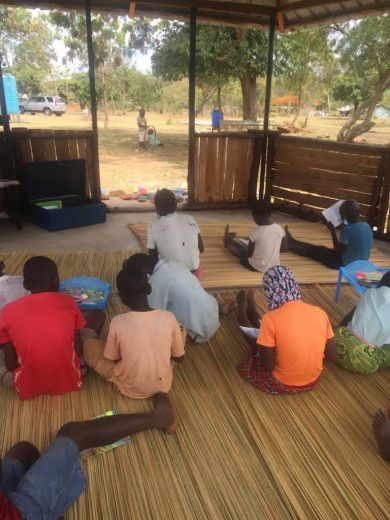
By transferring ownership of the structure to leaders in the community, and empowering even the children to drive its general management, more people were motivated to see the project succeed.
Although the immediate goals of the project center around addressing the disruptions and harmful idle activity resulting from school closures, Topaz and her team envision this project scaling up. In a year, the status of the project will be revisited with the intent of building additional structures in the community.


